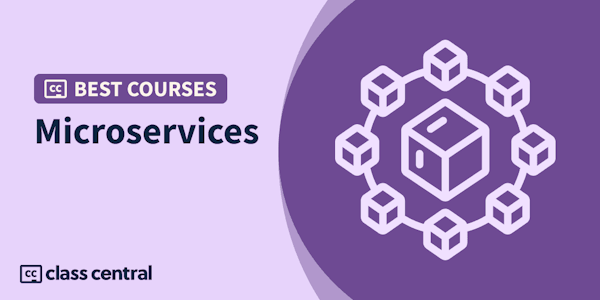¨Microservices" describes a software design pattern in which an application is a collection of loosely coupled services.
¨Microservices" describes a software design pattern in which an application is a collection of loosely coupled services. These services are fine-grained, and can be individually maintained and scaled. The microservices architecture is ideal for the public cloud, with its focus on elastic scaling with on-demand resources. In this course, you will learn how to build Java applications using Spring Boot and Spring Cloud on Google Cloud. You'll use Spring Cloud Config to manage your application's configuration. You'll send and receive messages with Pub/Sub and Spring Integration. You'll also use Cloud SQL as a managed relational database for your Java applications, and learn how to migrate to Spanner, which is Google Cloud's globally-distributed strongly consistent database service. You'll also learn about tracing and debugging your Spring applications with Google Cloud Observability. To succeed in this course, you should be familiar with the Java programming language and building Java applications with tools such as Maven or Gradle. You should also have general knowledge of Google Cloud.
¨Microservices" describes a software design pattern in which an application is a collection of loosely coupled services. These services are fine-grained, and can be individually maintained and scaled. The microservices architecture is ideal for the public cloud, with its focus on elastic scaling with on-demand resources. In this course, you will learn how to build Java applications using Spring Boot and Spring Cloud on Google Cloud. You'll use Spring Cloud Config to manage your application's configuration. You'll send and receive messages with Pub/Sub and Spring Integration. You'll also use Cloud SQL as a managed relational database for your Java applications, and learn how to migrate to Spanner, which is Google Cloud's globally-distributed strongly consistent database service. You'll also learn about tracing and debugging your Spring applications with Google Cloud Observability. To succeed in this course, you should be familiar with the Java programming language and building Java applications with tools such as Maven or Gradle. You should also have general knowledge of Google Cloud.



